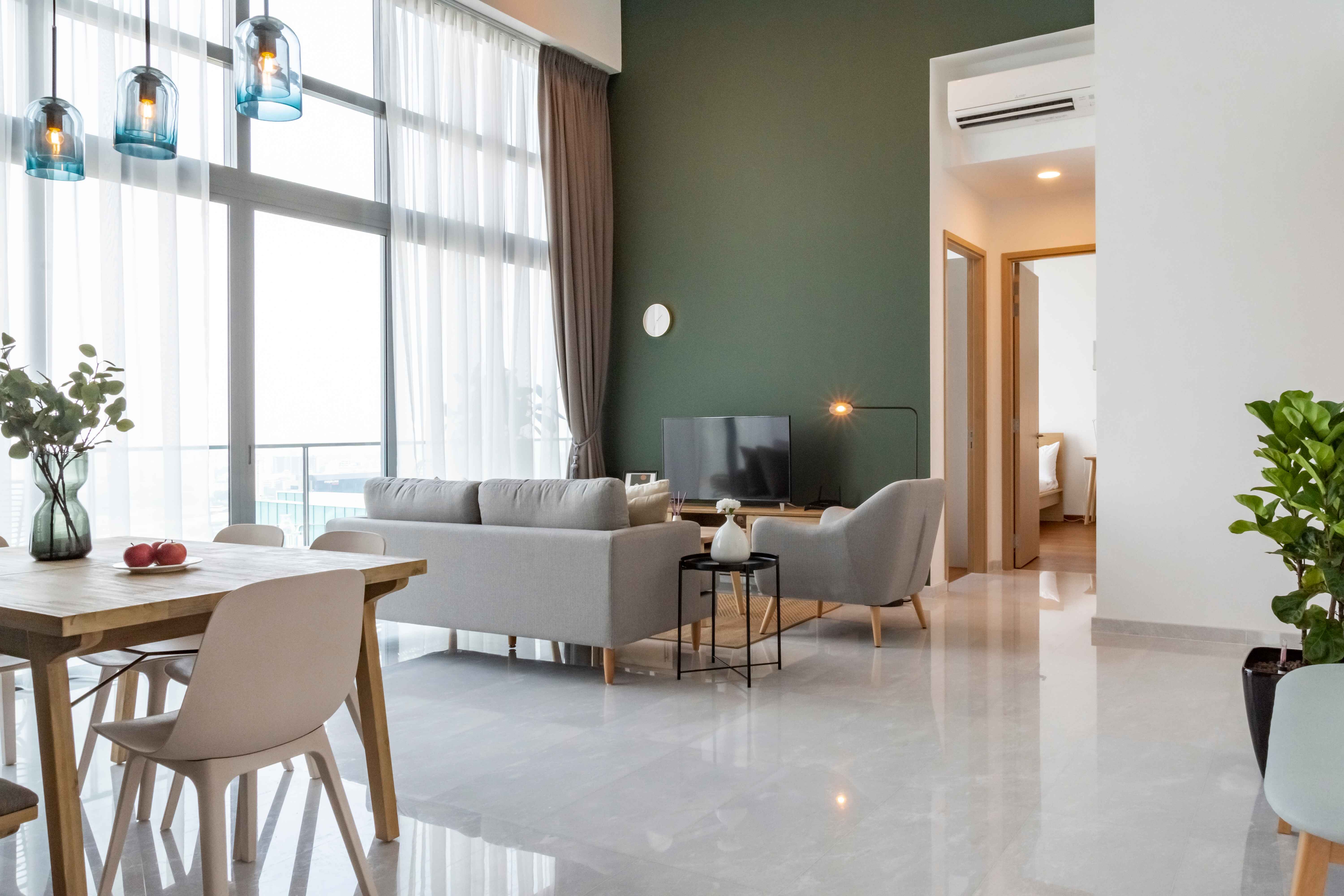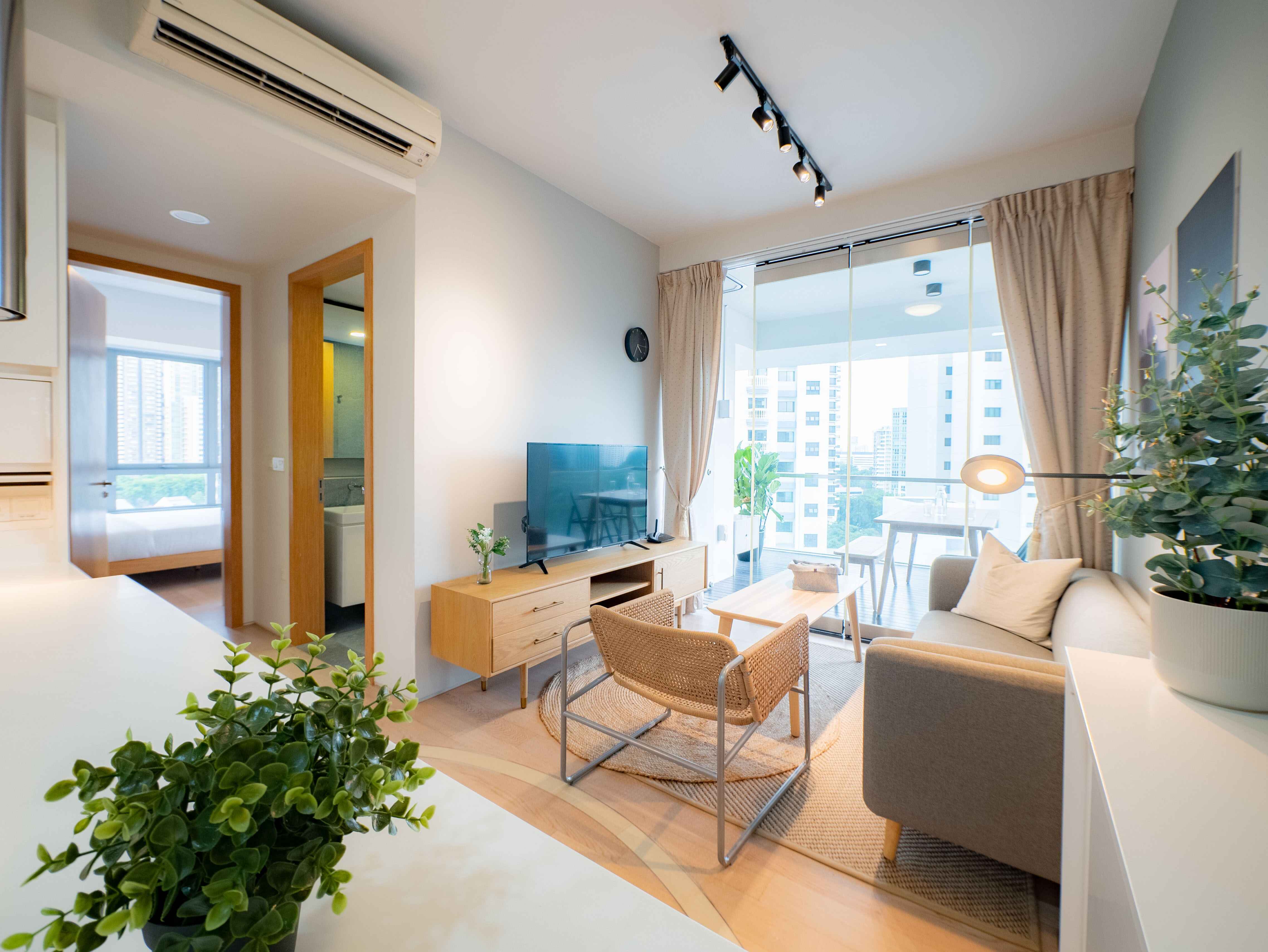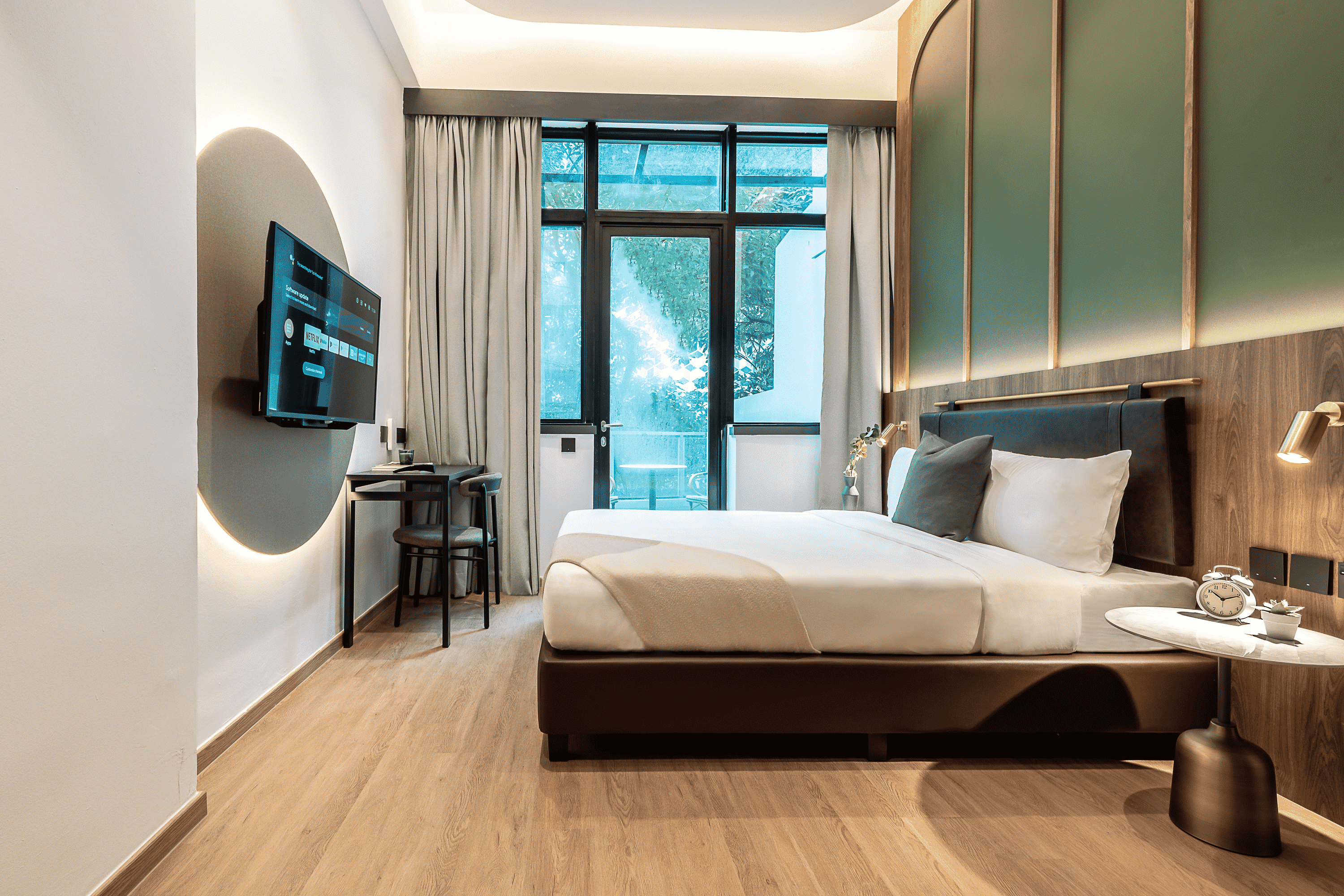Imagine relocating to a new country, and being able to not only find long-term accommodation, but also move into the apartment, complete with amenities – all within a span of 48 hours.
For anyone who has been through the arduous process of finding suitable rental while navigating the intricacies of the local rental market, this may sound like a pipe dream. But to Jonathan Wong, the newly appointed APAC CEO of co-living operator Habyt, it’s not only something that company hopes to achieve, but has actually made happen.
“We fully appreciate the administrative challenges that come with relocating to a new place, especially those coming from overseas. Traditional rental solutions typically involve the constraints of rigid two-year leases, hefty security deposits, complex administrative processes, and the added burden of providing your own furniture and amenities.”
“Habyt prioritizes a seamless and speedy move-in process for renters, streamlining the experience to allow for record move-in times – sometimes in as short as 48 hours from enquiry to move in,” he says. This means when tenants show up at their Habyt-run apartment with their bags, they can expect to find everything in place – from kitchen utensils and Wi-Fi to electricity and gas.

“We know that moving is hard enough in itself – so we’re simply asking, why can’t we take the stress out of it?”
In Singapore, Habyt’s rental options begin from a minimum stay of just three months, with the flexibility of month-to-month extensions thereafter. Owen House, a hotel partnership with real estate companies JMD Group and TCRE Partners, offers minimum stays of just one night. All together, these offer Habyt’s members “access to the widest variety of living options, accommodating nightly, weekly, or long stay arrangements”.
Wong, who moved to Singapore in 2014 can understand all too well the need to create a more seamless offering for renters.
“Back then, finding a place was a daunting task – even in a place as organized and well-run as Singapore – and I experienced all of the usual challenges: Touring numerous properties that looked nothing like their photos, dealing with my fair share of rejected offers, hefty upfront deposits, and the inflexibility of a two-year lease,” he recalls.
“We know that moving is hard enough in itself – so we’re simply asking, why can’t we take the stress out of it?”
(Related: Let the Music Play)
- TRANSFORMING THE RENTAL MARKET
- FINDING ROOM FOR GROWTH
TRANSFORMING THE RENTAL MARKET
Of course, in an increasingly competitive space for co-living operators, standing out from other players will soon require more than just well-furnished spaces and a fuss-free moving-in process. According to a recent sector report by real estate and investment management company JLL, there are at least 20 active co-living players in the Singapore market running approximately 9,000 co-living rooms. This number is set to increase by up to 2,100 new co-living units by the end of 2023.
 The living room in one of the Habyt units at 10 Beatty Road
The living room in one of the Habyt units at 10 Beatty Road
 One of the Habyt units at 2 Gilstead Road
One of the Habyt units at 2 Gilstead Road
The Berlin-based Habyt, which merged with Hmlet in Singapore early last year to make inroads into the Asian-Pacific market, has the distinction of being one of the world’s largest co-living operators. With over 30,000 rooms in more than 25 cities in three continents to its name, what Habyt can boast of over its competitors is “the freedom to switch between long-term, medium-term and short-term stay options, to upgrade from rooms to apartments and beyond”, even transnationally.
Wong explains: “For instance, one could start in a cozy single room in Singapore and upgrade to a more spacious master room, before relocating to another city in the Habyt portfolio like Hong Kong or Lisbon. This would all happen without the hassle of negotiating a lease with a new landlord, figuring out the administrative process in a new country, or even downloading an additional app.”
To do this successfully, Habyt relies heavily on technology and being innovative. Besides simplifying the process of booking an apartment online, its website also offers convenient features that members can tap on - such as cleaning services and a support function for all rental-related issues. A partnership with Stripe streamlines the payment process. And even as it offers flexibility to members, Habyt offers long-term leases to landlords and real estate partners, and assumes full responsibility for occupancy.
Breaking the mould is something that Wong, who previously held leadership roles at Uber SEA and CloudKitchens APAC, a tech-enabled real estate business, is no stranger to.
 Deluxe queen room with balcony at Owen House
Deluxe queen room with balcony at Owen House
He says: “My core passion lies in driving change across industries that have been slow to innovate, a commonality in my previous roles at CloudKitchens and Uber.”
“Just as Uber disrupted the taxi industry and CloudKitchens pioneered a viable alternative to brick-and-mortar restaurants, we at Habyt leverage technology to improve the residential real sector, offering flexible living solutions that empower access to housing anywhere, for anyone. This is especially important as the twin forces of urbanization and housing affordability challenges intertwine and intensify.”
- TRANSFORMING THE RENTAL MARKET
- FINDING ROOM FOR GROWTH
FINDING ROOM FOR GROWTH
Wong has ambitious expansion plans for Habyt. With over 1,000 units with at least a 90% occupancy rate across Singapore, Hong Kong, and Japan in the company’s APAC portfolio, Wong intends to at least double the size of the portfolio within the year. It has set its sights on laying roots in capitals like Jakarta, Bangkok, Kuala Lumpur, Seoul, and capital cities in Australia.
There are numerous considerations for where it plans to carry out its expansion plans, Wong says. These include the opportunities for scalability, the local housing dynamics, and the prevalence of digital nomadship.
For example, cities must be able to support growth to a minimum of 1,000 rooms, a scale that would make the business model economically viable and sustainable. Cities with a larger urban sprawl, where residents spend time on long commutes, are also attractive.
(Related: For Figment, Home is Where the Art is)
 T-shirt, blazer, and jeans by Loro Piana
T-shirt, blazer, and jeans by Loro Piana
“We are also particularly interested in cities that are facing a tight housing situation. High demand for housing, driven by factors like urbanization, gentrification, and population growth tends to create a favorable environment for flexible living solutions,” Wong adds.
Likewise, he says cities that attract digital nomads represent a growing market for flexible living, citing examples like Malaysia’s DE Rantau program, which aims to establish Malaysia as the preferred digital nomad hub in ASEAN and a South Korean digital nomad visa that hopes to attract international talents to stay in the country for up to two years.
Wong’s ultimate goal for Habyt in Asia Pacific is to offer flexible living solutions that “go beyond traditional rental options in these cities, while respecting the cultural nuances and lifestyle choices of each community”.
“I see an incredible opportunity here to reimagine the residential real estate market, in a way that is win-win-win for our customers, our real estate partners, and for us, by optimizing and densifying living spaces and by elevating the customer experience. Ultimately, Habyt’s value proposition is about making every move easy, for anyone, at any stage of life.”








 The living room in one of the Habyt units at 10 Beatty Road
The living room in one of the Habyt units at 10 Beatty Road
 One of the Habyt units at 2 Gilstead Road
One of the Habyt units at 2 Gilstead Road
 Deluxe queen room with balcony at Owen House
Deluxe queen room with balcony at Owen House
 T-shirt, blazer, and jeans by Loro Piana
T-shirt, blazer, and jeans by Loro Piana




 Back
Back
